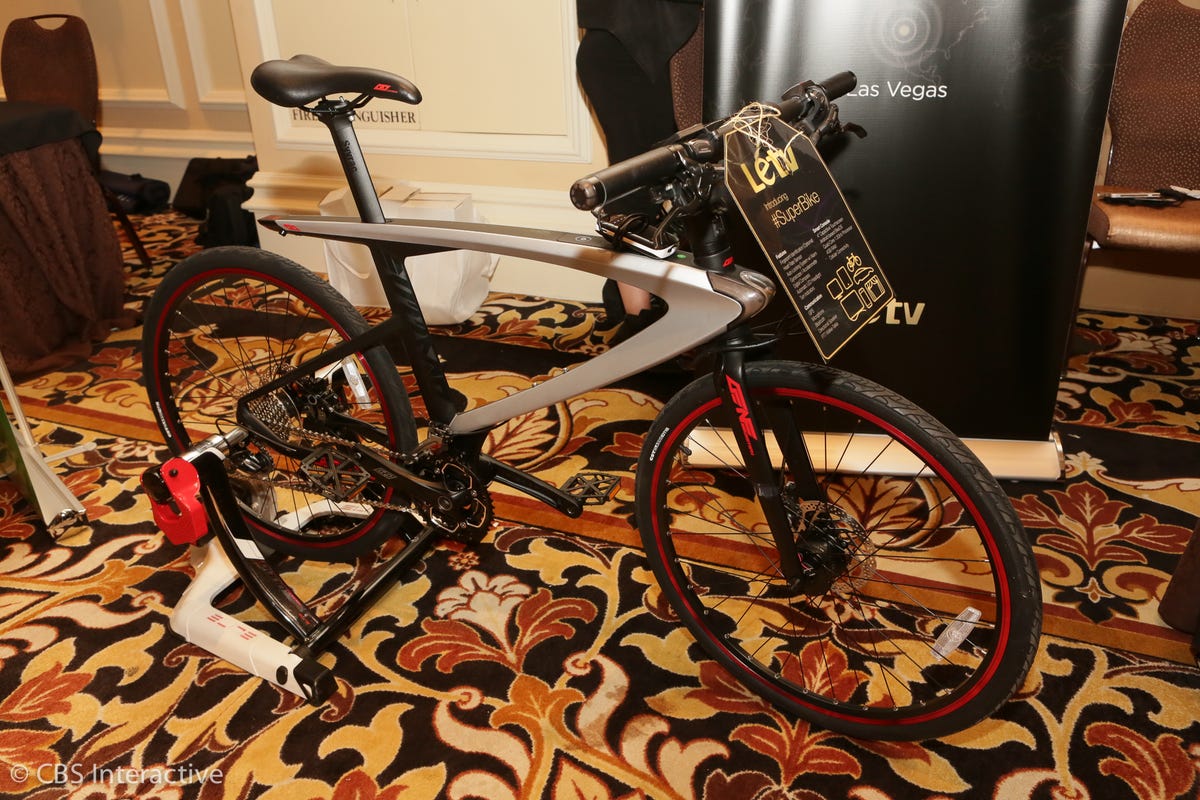
A smart ride
Chinese company Letv doesn't just make smartphones, it also has a smart bike that monitors your fitness and has fingerprint ID technology to keep your bike secure (how exactly, I'm not quit sure).
Coding is cool, I guess?
Just in case you want to get your tykes started extra early, Fisher Price Code-a-Pillar (Get it?!) uses the toy's segmented body to teach coding. By connecting the various parts together the toy will act in different ways.
Look up
Created by a Kickstarter campaign, the Roost Laptop Stand promises to end the neck and back pain associated with looking down by propping your laptop at eye level.
Charge your phones from your tunes
The Phaz headphones have a battery to charge an amplifier and even your handset, should you be short on juice.
More from Motorola
Motorola makes more than just smartphones. The company also showed a range of smart home products.
Who says paper is out?
We got a hands-on look at Wacom's Bamboo Spark, a smart folio that translates your ballpoint scrawl into a digital format stored in the cloud.
Find your Rhythm
iHealth a showed a 24-hour ECG monitor called the Rhythm. It follows a digital blood pressure monitor we saw last September at IFA in Berlin.
Easier Wi-Fi
You can control the settings of Luma's Wi-Fi router via a companion app while skipping the often bewildering settings menus you find in most routers. The hexagonal device also promises deep parental controls and tracking.
Cut through the noise
Doppler Lab's Here Active Listening earbuds will adjust your music based on where you are to cut out different kinds of background noise.
Pedal faster
Solos's eyewear for cyclists not only protects you from glare, it also shows performance data from companion smartphone apps or wearable sensors.
More than just a case
The Reach Case protects your iPhone and doubles as an antenna extender (slide the back part down) when you're in an area with poor coverage.
Build a robot
If your kids aren't interested in straight coding, Lego's WeDo 2.0 can tech the robotics instead.
Not just for kids
Meanwhile, for adults, the Makeblock open-source kit lets you build your own robot.
Do we need both?
Maroo's headphones have "brilliant crystals and gemstones with metallic cues" to bring fashion and quality sound to your ears. OK, then.
Better sound
If you have poor headphones, try plugging them into the Boom Stick. The device is supposed to use algorithms to improve your musical experience.
Better sleep
Place Beddit's under your sheets and on top of your mattress to track your sleep patters.
More to wear
Telepathy, which has positioned itself as a rival to Google Glass, was back with more smart glasses.
If you like it then...
You better put a ring on it. Neyya's smart ring doesn't have diamonds, but it can remotely control mobile devices.
Feeling stressed?
Spire's wearable can determine when you're anxious and guide you through breathing exercises on a mobile app to calm you down.
For your secret missions
Place your phone in the Privoro Privacy Guard to block all cell signals, Wi-Fi signals and radio transmissions.
Seen at CES 2016's Digital Experience Event
Announced late last year, the Ember mug cools down scalding hot beverages and warms them to an exact temperature for up to two hours.


